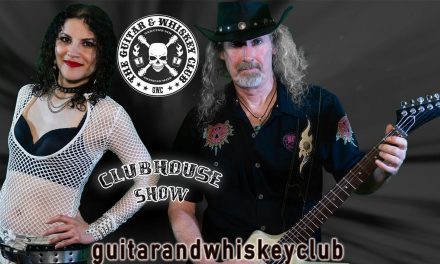
Michael Schenker Group and The Universe
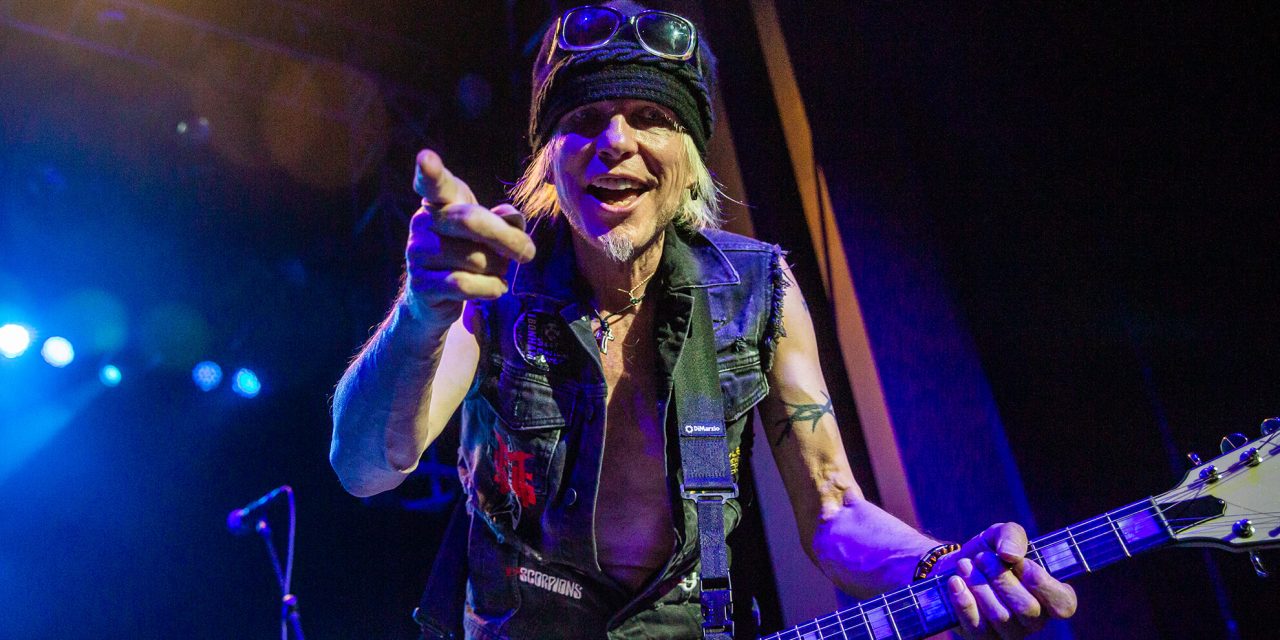
 Michael Schenker Group and The Universe
Michael Schenker Group and The Universe
The legendary Michael Schenker goes intergalactic and well beyond with Universal, his latest and greatest magnum opus of hard rock now available via Atomic Fire Records. With the omnipresent Ronnie Romero on lead vocals and a cast of the finest musicians in the galaxy, Universal by Michael Schenker Group (aka MSG) is sure to send music fans into even greater stratospheric heights! In the interview, Michael Schenker discusses the making of Universal, his many artistic collaborations found within his auditory journey, the upcoming US tour, and more…
Is there any overall story or concept behind the album title Universal?
It’s just simply when I did my first Temple Of Rock album a few years ago, I had Captain Kirk – William Shatner from Star Trek – he was speaking on my album Intro – and based on that I had an idea for an album cover. So, I made a little sketch, and I had my website kind of do a bit more to it. And then when I was doing this album, I remembered that sketch. It wasn’t good for the time when I sketched it, but when I was doing this album, I was thinking about album covers and I remembered that sketch. I showed it to my record company, and they liked it and they did something to it. Basically, it was already what the album cover was, and obviously there were lots of planets on there. And that cover kind of suggested Universe anyway – Universe – Universal – or The Universe. It was asking for it just by looking at it. So, there’s some thoughts behind too of doing what we want to do, like flying through space and maybe doing concerts on distant planets (laughs) with a UFO behind me. And like with Universal – music is a universal language that can be understood by any nationality or any kind of being. So, it is connected to that kind of stuff. That’s how it came together, but it obviously has a lot of (meanings), and one can make out of it different things.
Your main vocalist Ronnie Romero is in every band under the sun and now he’s in the Michael Schenker Group. How did Ronnie become involved and what do you like the most about Ronnie’s voice?
Ronnie was on the Michael Schenker Fest Revelation album – he was already singing We Are The Voice. We were looking for somebody who was able to – because it was the last song on the Revelation album to be completed – and Ronnie was doing a really professional, great job and he left a lasting impression on me. Plus, he did something with Ritchie Blackmore – and Ritchie and I – we are kind of living in a parallel universe. A lot of stuff that happened to Ritchie happened to me. Everybody who left Rainbow joined Michael Schenker Group. Anyway, and here we go, and Ronnie started to become part of the band slowly. We started our rehearsal for a Japan tour, and that never happened because of the pandemic. So, Ronnie was asked to participate on the Immortal album, and Ronnie was singing many songs on that one already. And now we did this album. I wanted him to be the main singer on this album, and he agreed. He also agreed to going on tour with us – and so he became the singer of the band.
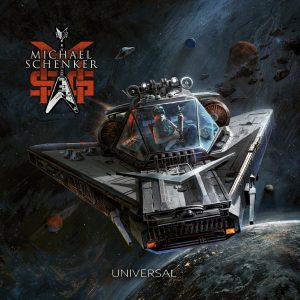
Steve Mann – he was in McAuley Schenker Group as well. We have been working together for a long time. And he was actually doing a lot of the engineering for our demos. Steve Mann is a quite important musician – he’s very good – he’s a fast learner. He produces bands and stuff like that. He’s a very valuable musician for us. Since ‘85, that’s when I met him for the first time and that’s when we played together. Since then, there were periods he was not in the picture. Then he came back to the foreground. I think it could have been that Wayne Findlay wasn’t available, and Steve Mann – I was thinking of him as like a great replacement – and that’s how it started.
You and Michael Voss from Mad Max make a great team. What do think makes you both work so well together on these albums?
It just kind of developed. We have been doing things together for 12 years and it just developed and developed. Eventually now, we got to the point where I come up with all the music – I’m the motor to start something from the beginning. And then Michael Voss takes it from there on the vocal level and he writes lyrics and writes melodies for the vocals. And so basically, we put Skype drums and Skype vocals and bass Skype keys and so on. And he creates the blueprints, and when the blueprint is ready, Michael Voss would also be the engineer – and he would start to execute all the thing we had discussed should be part of the blueprint. Then the musicians and the singers – they add their personality to it and then it becomes that product – the album.
A King Is Gone is actually about Ronnie James Dio. Before we actually discuss the song, when was the first time you met Ronnie James Dio and what was that like?
I don’t know when the first time was. The first time I actually experienced Ronnie consciously was when Cozy Powell joined MSG and we played The Country Club in Los Angeles. And Ronnie came into the venue to watch the show – and everybody in the venue was standing up and clapping. (Laughs) It was funny. And then I saw him in the 90’s at a session – and we talked about things – I can’t remember what we talked about, but he was a nice guy. And his wife was there – Wendy. He’s my favorite rock singer. I mean Long Live Rock ‘N’ Roll is outstanding!
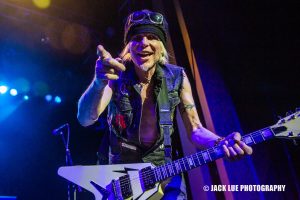
When I come into the studio with the music, we really don’t know how it’s going to shape up. So, everything happens in the moment, step by step. So, we really don’t know what’s going to happen. I’ll give you an example – for that song, A King Is Gone – let’s say I come into the studio, and I put my ideas down – record – and then I go back to the hotel. And then Michael Voss carries on working on the lyrics. And next morning when I come back from the hotel, he was telling me that “Okay, Michael, this is what I did last night. This is actually a tribute to Ronnie James Dio.” And I say, “Okay oh great! He’s one of my favorite rock singers.” And he played it and I go like “Oh, this is fantastic!” Then Michael said, “What do you think if we get the rhythm section that used to play when Ronnie James Dio was in the band?” And I said, “Yeah, if you can get them, go ahead!” And he got them – and it was with Bobby Rondinelli, Bob Daisley and Tony Carey. And then Markus Staiger, the head of Nuclear Blast (and now Atomic Fire) said, “Hey that song, The King Is Dead! I have a great singer for it! Why don’t you try it?” And that was Michael Kiske. And when we heard it, it was fantastic. So that’s how it shaped up to that, and similar it happens with other songs. We really don’t have a specific concept, but everything shapes up as we go.
I believe you have upcoming shows with Robin McAuley as the main vocalist. Are you looking forward to working with Robin again and will you be performing any songs from the upcoming album?
Well, we have a set that’s been well rehearsed. Ronnie Romero – he had a situation – he was confirmed for the tour, but I had to let him go because of his personal situation. So, Robin was so kind to jump in. He’s very professional and he’s getting better as he gets older. We also played in ‘87 – we did a tour with Def Leppard in almost the same countries we play now. So, it should be great for the fans to see us again together onstage. It’s not all that bad – it’s something to look forward to. But after this European tour, we’re going to carry on with Ronnie Romero – we do the festivals and then we go to America. We have Eric Martin opening the shows for us and then we play a few shows with WASP – that’s all with Ronnie Romero. And then we go to Japan with Ronnie and then hopefully to South America and Australia – and then it’s time for another album!
We are now here at your 50th Anniversary of recording. What goes through your mind knowing that you’ve been recording and creating music for 50 years and counting?
You know, I don’t feel the 50 years. I still feel 18 years old to be honest. There’s just the now and it just doesn’t appeal that the 50 years have gone – it’s really kind of a shock. And when you’re actually 18 years old and you think of 50 years, that’s big! You’re like “Wow! 50 years! You must be joking!” But when it comes to 50 years, it’s almost like the past doesn’t even exist. I don’t know how it works, but I don’t feel the 50 years.
Do you have any messages for your fans here in the States?
Yeah! Keep on rocking!
(Interview by Ken Morton – Photo by Jack Lue)










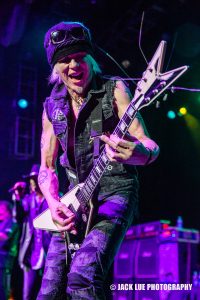 Michael Schenker Group and The Universe
Michael Schenker Group and The Universe
